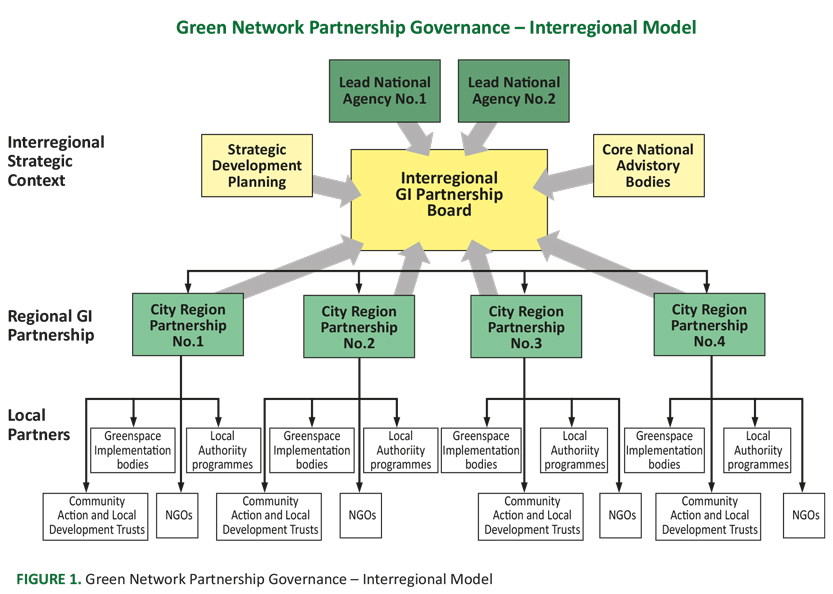Abstract
Background and Purpose: Partnerships are a key mechanism in the planning, delivery and management of urban forestry (UF) and green infrastructure (GI). They can facilitate locally rooted co-management and polycentric governance. They can also achieve synergies by combining the resources, commitment and expertise of diverse stakeholder groups in order to generate valuable outcomes and build social capital. Unfortunately, the term “partnerships” is not used consistently in literature and requires clarification. The characteristics which distinguish a partnership approach from other modes of cooperation are identified and described. The diversity of existing UF and GI oriented partnerships is outlined, with reference to their stakeholders, drivers, activities and goals, together with potential advantages of the partnership approach. Considerations to be made in their evaluation are derived from this background analysis and possible success factors are discussed.
Materials and Methods: The diversity, aims and defining characteristics of a partnership approach are based on an extensive literature review.
Results: Partnerships focus on diverse aspects and delivery phases of UF, ranging from the planning, design and creation of urban forests and GI to their management and use. Benefits delivered by such partnerships include environmental and economic services as well as social and cultural services such as environmental education, health, leisure and tourism. Generating valuable services whilst at the same time nurturing relationships between stakeholders helps to develop social capital and build capacity. In addition to environmental, economic and social benefits, the evaluation of partnerships may also address internal process variables such as social learning, the relationship between partners, and motivational outcomes that can influence future co-operation.
Conclusions: Co-operative partnerships offer a promising approach for delivery in UF. The development of relationships between partners maximises the potential for developing effective long term co-operation and for building social capital as an aid to the promotion of sustainable development. Keywords: urban green space, partnership approach, urban forestry partnerships, definition, coalitions, co-operation, sustainability, governance, social capital
Ralph Hansmann, Ian Whitehead, Silvija Krajter Ostoić, Ivana Živojinović, Makedonka Stojanovska, Nerys Jones, Andreas Bernasconi, Samira Benamar, Charlotte Lelieveld, Johan Barstad

